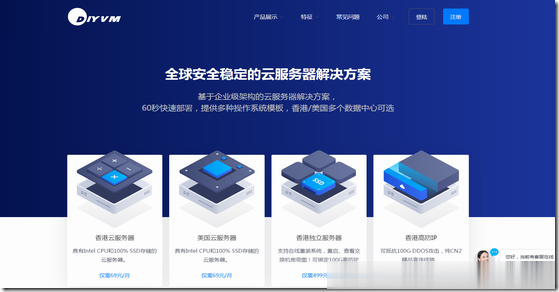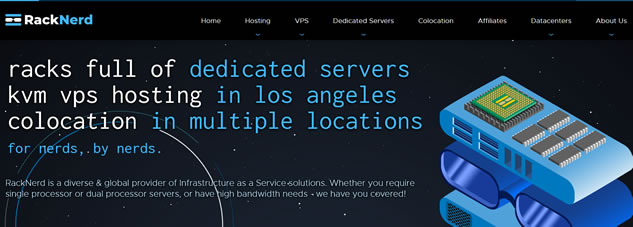authorPHP和JSP作为服务器脚本语言的性能比较-毕业论文外文翻译
1
2
3
4
5
6
Performance Comparison of PHP and JSP as Server-Side Scripting Languages
MaterialSource:Notesin Computer Science
Author: Scott Trent;Michiaki Tatsubori; Toyotaro Suzumura;Akihiko Tozawa and TamiyaOnodera
1 Introduction
The dynamic scripting language PHP(PHP Hypertext Preprocessor) has becomeenormously popular for implementing lightweight web applications,and is widely used toaccess databases and other middleware.Apache module popularity surveys performed bySecurity Space in October 2007 indicate that 37%of Apache servers have PHP supportenabled,making it the most popular Apache module by 10 percentage points.Businessesare quickly realizing the powerful combination of a service oriented architectureenvironment with dynamic scripting languages like PHP.However,we believe that thereare still critical performance issues involving PHP which remain to be investigated.
This paper focuses on the use of dynamic scripting languages to implement webserver front-end interfaces.This corresponds with the way that the industry standard webserver performance benchmark SPECweb2005 utilizes PHP and JSP ( JavaServerPages).In this case, scripts are used for the implementation of dynamic page generation,rather than the realization of complex business logic.This contrasts with the traditionaluses of complex JSP-based business logic implementation.While there are numerousstudies on dynamic web content, this paper complements these studies with detailedanalysis focusing on PHP. For example, following the performance study on CGI(Common Gateway Interface) based web servers for dynamic content by Yeager&McGrath back in 1995, researchers and practitioners have been examining theperformance of more recent dynamic Webcontent generation technologies.These works,however, handle application scenarios where servlet front-ends implement relativelycomplexbusiness logic.
Although Warner and Worley discuss the importance of also using PHP withSPECweb2005, to the best of the author’s knowledge, this paper is the first to publish adetailed analysis of SPECweb2005 experimental results using both PHP and JSP. Thedetailed analysis of PHP and JSP performance based on SPECweb2005 offered by thispaper enables designers and implementers of web servers to understand the relativeperformance and through put of different versions and configurations of PHP and JSP.
7
2 Multi-tier Web Server Architecture:Lightweight Front-EndUsing PHP/JSP
Developers typically use PHP to implement a front-end interface to dynamic Webcontent generators,which are combined with web server software and back-end serversto provide dynamic content.The web server directly handles requests for static contentand forwards requests for dynamic content to the dynamic content generator. Thedynamic content generator, supported by back-end servers, executes code which realizesthe business logic of a web site and stores dynamic state. Back-end servers may beimplemented as a straight-forward database, or may be more complex servers handlingthe business logic of the web site. The front-end implementation may vary fromheavy-weight business logic handlers to lightweight clients composing content receivedfrom back-end servers.
This paper focuses on multi-tier web site development scenarios utilizing suchlightweight front-ends, supported by one or more layers o f heavy-weight back-ends.Thisassumption is reasonable when considering Service-Oriented environments where PHPscripts are used to implement a "mash-up"of services provided elsewhere, in addition tothe case of simple web sites such as bulletin boards where PHP scripts are just a wrapperto a database. Within the scenarios described in this paper, the dynamic contentgenerator provides client implementation in addition to page composition. It connects tothe back-end server through a network using either standard protocols such as HTTP orapp lication/middleware-spec ific proto co ls.
JSP technology can be considered an alternative to PHP in implementing suchfront-ends.While it is part of the Java Servlet framework,developers typically use JSP toimplement lightweight front-ends.Both PHP and JSP allow developers to write HTMLembedded code. In fact, although there are language inherent differences between PHPand Java, the use ofPHP scripts and JSP files can be very similar.
The objective of the experiments detailed in this paper is to measure theperformance of lightweight front-end dynamic content generation written in PHP and JSPwith popular web servers such as Apache and Lighttpd. This web server architecturescenario involves users who access a web server with pages written in plain static HTML,as well as JSP and PHP scripts which mix scripting language with HTML code. Theconfiguration assumed within the paper is a typical one,where web server software, suchas Apache,distinguishes between pure HTML, JSP,and PHP respectively with suffixes
8
such as .html, .jsp,and.php.HTML code is directly returned to the requesting end-user’sweb browser,where JSP and PHP pages are respectively parsed by the Tomcat scriptengine and the PHP runtime engine which both provide pure HTML which is forwardedto the end-user on a remote system.A common point between JSP and PHP is thatimplementations which perform well have a dynamically compiled and cached byte code.For example, the Java runtime used by the Tomcat script engine which we used performsmuch better when the Just-in-Time (JIT) compiler is enabled to create efficient cachednative runtime code. Similarly, the Zend PHP runtime we used also performssignificantly better when the Alternative PHP Cache (APC) is enabled, in which APCstores PHP byte codes compiled from the script source code in shared memory for futurere us e.
3 Language Runtime Performance Micro Benchmarking
To understand the difference in performance characteristics between PHP and Javaat the language runtime levelwe compared the following engines using a series of microbenchmark te sts:
-PHP 4.4.7
-PHP 5.2.3
-Java 5 with Just-In-Time(JIT)compilation(IBM J9 VM 1.5.0 Build 2.3)
-Java 5 without Just-In-Time(JIT)compilation(same as above)
The PHP language framework allows developers to extend the language with libraryfunctions written in C. These functions,which are known as "extensions", are thenavailable to be used within PHP scripts. The PHP runtime provides a variety ofextensions for string manipulation, file handling,networking,and so forth.S ince our firstgoal was to understand the performance of the PHP runtime itself,we conducted ourexperiments without the use of extensions.We developed the following microbenc hmarks:
-A quick sort benchmark which sorts 100 integers,
-A Levenshtein benchmark which measures the similarity between two strings of 56charac ter s,
-AFibonacci benchmark which calculates the 15th value in a Fibonacci series withtwo arb itrary starting values.
These PHP benchmarks were implemented entirely with PHP language primitivesand avoided the use of PHP extensions. The Java versions also focused on usinglanguage primitives rather than standard classes.We compared the total run time of
9
- authorPHP和JSP作为服务器脚本语言的性能比较-毕业论文外文翻译相关文档
- 证书锦上添花-为最佳JSP服务器Resin加上SSL认证.doc
- 性能PHP和JSP作为服务器脚本语言的性能比较-外文翻译
- 服务器网络服务器配置(iis7,支持jsp)
- 注释JSP详解与Tomcat服务器
- 按钮移动应用服务器端开发(基于JSP技术)-2017按钮实验报告:按钮
- 广播移动应用服务器端开发(基于JSP技术)-2017BroadcastReceiver实验报告:BroadcastReceiver
SugarHosts糖果主机,(67元/年)云服务器/虚拟主机低至半价
SugarHosts 糖果主机商也算是比较老牌的主机商,从2009年开始推出虚拟主机以来,目前当然还是以虚拟主机为主,也有新增云服务器和独立服务器。早年很多网友也比较争议他们家是不是国人商家,其实这些不是特别重要,我们很多国人商家或者国外商家主要还是看重的是品质和服务。一晃十二年过去,有看到SugarHosts糖果主机商12周年的促销活动。如果我们有需要香港、美国、德国虚拟主机的可以选择,他们家的...

DiyVM:2G内存/50G硬盘/元起线路香港vps带宽CN2线路,香港VPS五折月付50元起
DiyVM是一家低调国人VPS主机商,成立于2009年,提供的产品包括VPS主机和独立服务器租用等,数据中心包括香港沙田、美国洛杉矶、日本大阪等,VPS主机基于XEN架构,均为国内直连线路,主机支持异地备份与自定义镜像,可提供内网IP。最近,商家对香港机房VPS提供5折优惠码,最低2GB内存起优惠后仅需50元/月。下面就以香港机房为例,分享几款VPS主机配置信息。CPU:2cores内存:2GB硬...

RackNerd提供四款高配美国服务器促销活动低至月$189
RackNerd 商家给的感觉就是一直蹭节日热点,然后时不时通过修改配置结构不断的提供低价年付的VPS主机,不过他们家还是在做事的,这么两年多的发展,居然已经有新增至十几个数据中心,而且产品线发展也是比较丰富。比如也有独立服务器业务,不过在他们轮番的低价年付VPS主机活动下,他们的服务器估摸着销路不是太好的。这里,今天有看到RackNerd商家的独立服务器业务有促销。这次提供美国多个机房的高配独立...

-
重庆重庆朝阳分局犯罪嫌疑人标准化信息采集系统支出127支持ipad化学品安全技术说明书win10445端口Win10系统开放端口号怎样查看?canvas2动漫cv井口裕香,都有哪些作品?canvas2Canvas ~セピア色のモチーフ~ 这个动画片的中文翻译是什么?从哪看?ms17-010win10蒙林北冬虫夏草酒·10年原浆1*6 500ml 176,176是一瓶的价格还是一箱的价格迅雷快鸟迅雷快鸟这种强盗软件不违规吗?